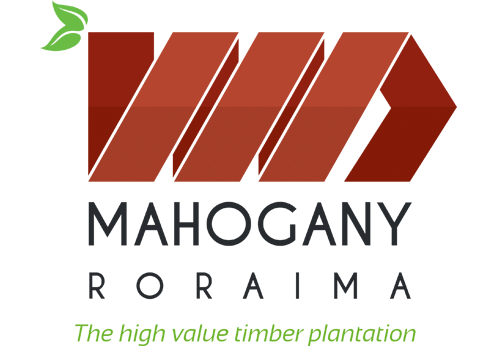Reforestation. Project supported by the private sector foresees sustainable development in degraded areas of the Amazon region
Preserving the Amazon region is not an easy task. Different interests, conflicts, and high costs to protect or recover large areas make magical or definitive solutions unfeasible. But that does not prevent different initiatives from emerging to minimize the growing devastation.
In Roraima, a logging company with technology solutions is working with the state government to develop a reforestation project to recover degraded areas.
“Even with this problem of burning – part natural and another criminal – there was a giant opportunity, we need to give an answer. It consists of planting native forest and the other exotic, quickly and cheaply. ” says Marcelo Guimarães, Chairman of the Board of Directors of Mahogany Roraima, which specializes in planting African mahogany (read more).
In practice, the exotic part could be extracted in the future (about 15 years) and generate profits for landowners – up to 20% of trees in reforested areas for management. “people take the fine, but they need to sort it out and reforest. But there’s no economic way out – and with people who don’t even get a loan bank and need to eat. Thus solves an environmental liability with a sustainable economic bias, just fine or arrest does not solve, “argues Guimarães.
The businessman says that the funding would be lost fund via BNDES, specific for reforestation, with the government issuing the edicts. The company would help in the operational part, since the seedlings of the plants.
According to him, until the time to exploit wood in the short term, the idea is to enable small farmers to grow and market fruits and vegetables within the forest areas, Agrofloresta Solidária.
This last project already works within the company itself and with the participation of Venezuelan immigrants. Production, as of next month, is expected to provide food for up to six thousand refugee families every three months (two thousand a month).
The surrender will be made to the Army, which commands Operation Welcomed.
Before Recovering Areas, Government Helps Make CAR
Through Femarh (State Foundation for Environment and Water Resources of Roraima), the government of Roraima licit a project for enrollment in the CAR (Rural Environmental Registry) – requirement of the Forest Code – in nine municipalities of the Midwest and Southern regions of the state. . contemplating 60% of the municipalities.
According to Femarh, 14,249 rural producers will benefit, with 10,028 lots located in 16 agrarian reform settlement projects and 4,221 rural properties located outside settlement projects. The service will be performed by a specialized company to be hired by electronic trading with resources (R $ 3.3 mi) raised through the Amazon Fund Spontaneously were made about 7 thousand CAR.
According to environmental analyst Wagner Nogueira, the actions go beyond environmental registration, “because the state is committed to developing actions such as the State Plan for the Recovery of Permanent Preservation Areas (APPs) and Rls (Legal Reserves), so that the benefited rural producers have full condition of having their rural properties environmentally regularized “.
Recovery
Nogueira says that Femarh is currently seeking partnerships to expand the project’s actions, especially with the recovery of degraded areas, and has been talking to Embrapa, state and municipal secretariats, universities and private institutions, such as Mahogany. Roraima “After this phase of registration and with an environmental diagnosis of rural properties, it will be necessary to build new projects with immediate actions to recover environmental liabilities of registered properties,” he said.
African mahogany
Company wants to be the largest in the world
Above the equator line. Roraima has similar latitude to the African countries where local mahogany grows. With favorable climate and soil and cheap land, the state was adopted by Magohany Roraima for an ambitious project: planting 40,000 hectares of the species in 10 years and becoming the world’s largest exporter – less than 700 km from Boa Vista to Atlantic Ocean by Georgetown, Guyana. plus easy access to the Pacific via the Panama Canal.
Over the past three years the company has perfected a machine that can plant up to 200 hectares per day. The goal, however, even for environmental license reasons, is to plant an average of 200 per month. Most should be planted in a third party area (which will have part of the profits). with the company bearing costs in exchange for carbon credit.
METRO CURITIBA
See the original article(in portuguese) clicking here.

